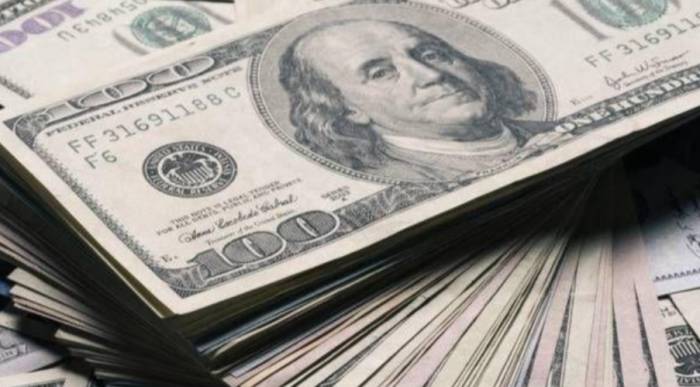RMB Surges by 1,500 Points
The Chinese yuan is appreciating at an unprecedented rate, with yesterday's increase setting a new record for the largest single-day rise.
Global institutional capital and central banks are chasing Chinese assets, continuously buying in from different directions and channels, including the stock market and bonds.
On the other hand, this year has seen the selling off of US stocks and bonds, and now even the US dollar is beginning to fall out of favor with Americans themselves.
Nowadays, an increasing number of US states are passing legislation to recognize gold and silver as legal tender, weakening the status of the US dollar not only internationally but also domestically.
01, Appreciation
Yesterday, the yuan experienced a staggering increase. The previous trading day had already seen a rise of 150 points, but compared to yesterday, that was nothing.
Yesterday, after the market opened, it remained mostly in an upward trend throughout the day, with the fastest increase occurring in the morning and evening.
The exchange rate was at its lowest at 7.3378, but by the close, it had risen to 7.1748, a full-day increase of 1553 points.
At the end of last month, the yuan had risen by nearly 1300 points in a single day, but then experienced a certain decline due to a US dollar interest rate hike. However, this time, it rose by more than 1500 points in just one day, and has already erased the increases of the previous several days.
Advertisement
Strictly speaking, the yuan first broke below 7.17 on September 26th. That is to say, the current exchange rate has returned to the level of late September, and over the past month, the yuan has gone through a roller coaster ride.Moreover, it is noteworthy that although the Chinese yuan has experienced two rounds of rapid depreciation this year, the overall depreciation is still lower than that of other non-US currencies such as the Japanese yen and the British pound.
So far this year, the British pound has depreciated by 15.9%, and the Japanese yen has depreciated by as much as 27.4%. In contrast, the offshore exchange rate of the Chinese yuan against the US dollar has only fallen by 12.7%, which is close to the euro, which has also fallen.
Therefore, the Chinese yuan has actually been appreciating against the Japanese yen and the British pound this year.
02, The US dollar is being abandoned
Although the US dollar has been rising, global capital is unwilling to hold a large amount of US dollars. The reason is simple: large funds cannot only hold cash currency. Under normal circumstances, they would hold corresponding assets, such as real estate, stocks, bonds, etc.
However, this year, US bonds, the heaviest position held by institutions, have experienced a significant decline. The total return index of US bonds has fallen by more than 18% this year, and the treasury bond index has also fallen by 13%.
If you hold US dollar stock assets, it would be even more tragic. This year, the technology sector, which is the favorite of overseas institutions and represented by the NASDAQ index, has fallen by 33%. If you hold some large blue-chip stocks, we can see that the S&P 500 index has also fallen by 21%.
Is holding US real estate safe?
Before the second quarter of this year, US housing prices were still rising, which seemed to be a good choice. However, starting from July this year, US housing prices have been falling month by month, and the decline is getting larger.
Especially after October, the average loan interest rate in the United States has exceeded 7%, and the number of new mortgage applications has been decreasing by more than 10% every week. The US real estate market is also in a precarious situation now.For large institutions, if they hold a substantial amount of U.S. real estate, even if they become aware of impending risks, it is difficult to sell off a large volume in a short period of time. It's no wonder that in the United States, an increasing number of states have already passed or are in the process of passing legislation to confirm the treasured status of gold; apparently, even Americans are beginning to lose confidence in the U.S. dollar.

03, Yuan assets are being snapped up
Conversely, yuan-denominated assets are becoming increasingly popular. We can also take a look at the bond market, which is much larger than the stock market. This year, foreign institutions have been continuously entering China's interbank bond market, with the total number now exceeding 1,100. Even in September, when the exchange rate fell sharply, there were still 4 new institutions added.
Recently, the yuan-denominated national bonds and local government bonds issued by China through Hong Kong and Macao have both been overwhelmingly sought after by overseas funds. In the second half of this year, we have issued two tranches of national bonds in Hong Kong, China. And in just the past two months, Guangdong Province, Hainan Province, and Shenzhen City have each issued local government bonds in Hong Kong or Macao.
These bonds share a common feature: the coupon rates are not high, but they are oversubscribed by foreign capital. This is even more evident in the stock market, where Northbound capital in A-shares has been in a general net buying position since the beginning of the year.In terms of the Hong Kong stock market, the trading volume in October has been continuously increasing, which also indicates that foreign capital is using Hong Kong stocks to buy Chinese assets.
Even in the recent trading sessions, although the NASDAQ index has been falling, the index of Chinese concept stocks has risen significantly for four consecutive days.
All of these indicate that foreign capital is continuously buying RMB assets.
Leave A Comment